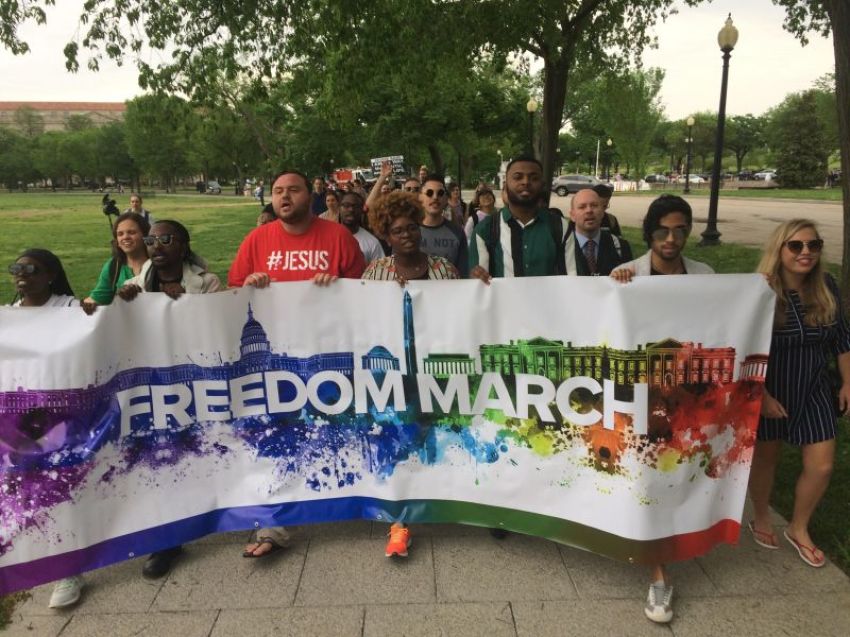Therapies for Unwanted Same-Sex Attraction Are Effective, Study Finds

UPDATE: SEPT. 7, 2019: The study, "Effects of Therapy on Religious Men Who Have Unwanted Same-Sex Attraction," has been retracted from the The Linacre Quarterly journal at the request of the journal editor and SAGE Publishing “based on unresolved statistical differences." Following a statistical review and additional information provided by the study’s authors, the editor “concluded that in spite of this additional information, the original review still required retraction of the paper.”
A new study is challenging the American Psychological Association's contention that therapies for unwanted same-sex attraction are harmful.
The study, "Effects of Therapy on Religious Men Who Have Unwanted Same-Sex Attraction," which was first published July 23 in The Linacre Quarterly, finds that sexual orientation change efforts (SOCE), often derisively called "conversion therapy," improves the mental health of participants. Researchers surveyed 125 male residents of the United States. The men, mostly Christian, were at various stages of experiencing unwanted same-sex attraction. Some were sexually active while others were abstaining from sex.
Eighty-nine percent of respondents were Christians from a variety of traditions; 13.6 percent identified themselves as "non-denominational Christians"; 5 percent said they were Roman Catholic; 28 percent were Mormons; and 9.6 percent were Jewish. 55 percent of the sample reported that they attended religious services weekly.
Fifty-four percent of the participants were single; 46 percent were married; and the sample had about the same number of those who were homosexually active as abstainers. Over 80 percent reported they had some degree of depression and suicidality at the beginning of therapy.
Nearly 70 percent of respondents self-reported "some to much" reduction in their same-sex attraction and their behavior and an increase in their opposite-sex attraction and behavior.
The study counters the assertions and recommendations of the APA that efforts aimed at reducing same-sex attractions are unsafe and damaging to mental health and well being.
Of all the SOCE techniques represented, over three-fourths of survey participants endorsed as especially helpful, with ratings of "extremely," "markedly," and "moderately" the following: "developing nonerotic relationships with same-sex peers, mentors, family members, and friends"; "understanding better the causes of your homosexuality and your emotional needs and issues"; "meditation and spiritual work"; "exploring linkages between your childhood and family experiences and your same-sex attraction or behavior"; and "learning to maintain appropriate boundaries."
Survey participants also reported improvements "in self-esteem and social functioning, and similarly decreases in suicidality, substance abuse, depression, and self-harm. Before therapy, they had experienced an average of three of these problems. The changes had apparently lasted for a median of nearly 3 years, for those post–SOCE. The degree and intensity of the initial conditions are not known and are self-reported, nor are they on established psychometric scales."
"For this survey group, contrary to the null hypotheses, SOCE is neither ineffective, nor harmful, conflicting with APA findings. On the basis of this survey, religious clients could be told that some degree of change is likely from SOCE, and positive change in suicidality, self-esteem, depression, self harm, substance abuse, social functioning should be moderate to marked. Also contrary to the null hypotheses, social pressures do not predominate as reasons for entering SOCE, and effect sizes are not clearly less than for standard psychotherapies," the study concluded.
In 2009, APA formed a task force to study the issue. It concluded that telling patients with unwanted sexual attraction that they can change could harm their mental health.
In 2015, Barry S. Anton, then-president of the APA stated that "[s]o-called reparative therapies are aimed at 'fixing' something that is not a mental illness and therefore does not require therapy. There is insufficient scientific evidence that they work, and they have the potential to harm the client."
"APA has and will continue to call on mental health professionals to work to reduce misunderstanding about and prejudice toward gay and transgender people."
Yet the authors of the study maintain that the survey is further evidence that APA should reconsider their stance of discouraging men from seeking therapy for their unwanted same-sex attraction.
George Carneal Jr., author of From Queer To Christ: My Journey Into The Light concurs. Carneal spent 25 years living and identifying as a homosexual but has been celibate for over 10 years and says same-sex attraction no longer controls him like it once did.
"The APA's claim that 'sexual orientation change therapies should not be used because they are probably ineffective and may cause harm' is an opinion. There are countless success stories from LGBT individuals who would beg to differ," he said in an interview with The Christian Post Monday.
"Harm doesn't come from a therapist who operates with compassion and a desire to help a client who is seeking help. Harm comes as a result of being told we have to live with these unwanted desires and have no hope of change! In my case, therapy was an important part of my journey but real change happened when I truly surrendered my life to Christ," he said.



























